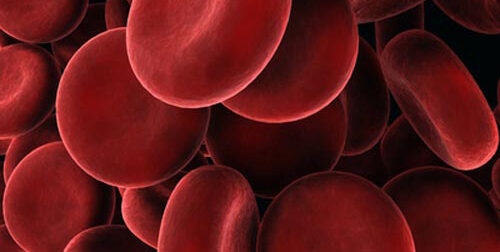The phrase “blood and guts” may acquire a gentler meaning, one associated with care and healing rather than ferocity and violence—or more to the point, to the provision of blood rather than the spilling of it. The potential transition involves a new approach to generating universal donor blood. Basically, enzymes from gut microorganisms have been found that can remove A and B antigens from red blood cells, yielding blood that is something like type O blood, the universal type used for transfusions.
The enzymes were identified as potential blood type converters by scientists based at the Technical University of Denmark (DTU) and Lund University. These scientists, who were led by DTU’s Maher Abou Hachem, PhD, and Lund University’s Martin L. Olsson, PhD, recently presented their findings in Nature Microbiology, in an article titled, “Akkermansia muciniphila exoglycosidases target extended blood group antigens to generate ABO-universal blood.”
“[We] biochemically evaluated 23 Akkermansia glycosyl hydrolases and identified exoglycosidase combinations which efficiently transformed both A and B antigens and four of their carbohydrate extensions,” the article’s authors wrote. “Enzymatic removal of canonical and extended ABO antigens on RBCs significantly improved compatibility with group O plasmas, compared to conversion of A or B antigens alone. Finally, structural analyses of two B-converting enzymes identified a previously unknown putative carbohydrate-binding module.”
Human red blood cells carry specific complex sugars structures (antigens) that define the four ABO blood groups A, B, AB, and O. These antigens control compatibility between donors and recipients for safe blood transfusion and organ transplantation. Donor blood is screened for disease markers and the main blood groups. It can then be stored for up to 42 days in a refrigerator.
The need for donor blood is high due to the elderly making up a larger proportion of the population and more patients undergoing blood-intensive medical procedures. Successfully converting A or B blood types into ABO universal donor blood can markedly reduce the logistics and costs currently associated with storing four different blood types. In addition, the development of universal donor blood will lead to an increased supply of donor blood by reducing the waste of blood approaching its expiry date.
The reason why it is necessary to remove the A and B antigens to create universal donor blood is because they can trigger life-threatening immune reactions when transfused into nonmatched recipients.
The concept of using enzymes to generate universal donor blood was introduced more than 40 years ago. Since then, higher efficiency enzymes to remove the A and B antigens were discovered, but researchers are still not able to explain or abolish all immune reactions related to the blood, and therefore these enzymes are still not used in clinical practice.
The enzymes identified by the DTU and Lund University researchers represent a decisive step forward. As the researchers noted, “The gut symbiont Akkermansia can degrade mucin O-glycans including ABO epitopes.”

He stated that the discovery is the result of combining the expertise of DTU researchers in enzymes from the human gut microbiota and Lund University researchers in carbohydrate-based blood groups and transfusion medicine. “What is special about the mucosa is that bacteria, which are able to live on this material, often have tailor-made enzymes to break down mucosal sugar structures, which include blood group ABO antigens,” he continued. “This hypothesis turned out to be correct.”
“Universal blood will create a more efficient utilization of donor blood, and also avoid giving ABO-mismatched transfusions by mistake, which can otherwise lead to potentially fatal consequences in the recipient,” added Olsson, who is a professor of hematology and transfusion Medicine at Lund University. “When we can create ABO-universal donor blood, we will simplify the logistics of transporting and administering safe blood products, while at the same time minimizing blood waste.”
The researchers from DTU and Lund University have applied for a patent on the new enzymes and the method for enzyme treatment and expect to make further progress on this in their new joint project over the next three and a half years. If successful, the concept needs to be tested in controlled patient trials before this can be considered for commercial production and clinical use.



